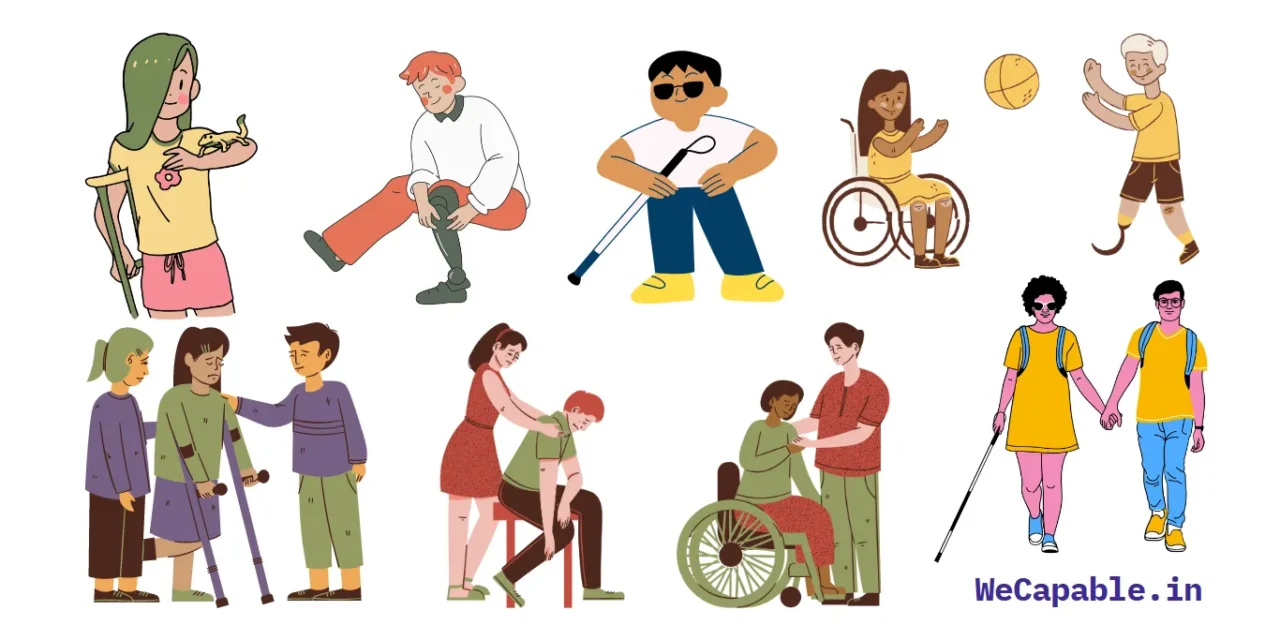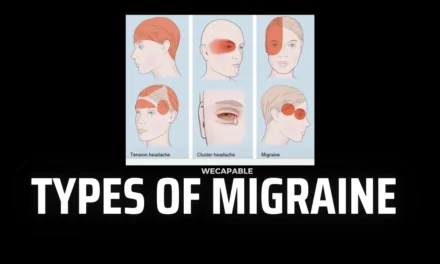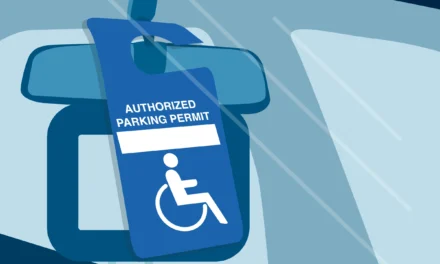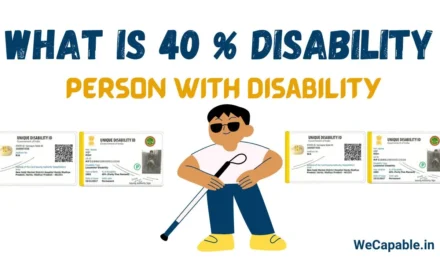Introduction:
In our diverse world, it is essential to embrace and understand the various disabilities that individuals may experience. While disabilities present unique challenges, they also bring forth numerous positive effects that can enrich society. This article explores 22 different types of disabilities, shedding light on their positive impacts and providing practical tips for fostering inclusivity and support.
1-Visual Impairment:
Enhanced auditory and tactile senses, increased creativity in problem-solving, heightened empathy, and perspective-taking. Practical Tips: Offer verbal descriptions, provide accessible materials (braille or audio), and ensure proper lighting and clear signage.
2-Hearing Impairment:
Strong visual communication skills, heightened focus and concentration, heightened visual perception. Practical Tips: Utilize visual aids (sign language or captions), maintain eye contact, minimize background noise, and use written or visual communication methods when necessary.
3-Mobility Impairment:
Increased adaptability and resilience enhanced problem-solving abilities, promotion of accessible environments for all. Practical Tips: Ensure wheelchair accessibility, offer assistance when needed (with consent), promote universal design principles, and be mindful of physical barriers.
4-Intellectual Disability:
Unique perspectives and approaches to problem-solving, emphasis on strengths and abilities, fostering a sense of community and support. Practical Tips: Provide clear instructions and visual aids, promote individualized learning strategies, encourage inclusion in social activities and meaningful work.
5-Developmental Disabilities:
Promoting diversity of thought and perspective, fostering compassion and patience, celebrating achievements and milestones. Practical Tips: Create structured environments, offer clear expectations and routines, provide support and accommodations based on individual needs.
6-Speech Impairment:
Encouraging alternative modes of communication, enhancing non-verbal communication skills, fostering patience and understanding. Practical Tips: Practice active listening, utilize visual aids or communication devices, provide ample time for response, and avoid interrupting or speaking on behalf of the individual.
7-Mental Health Disabilities:
Building resilience and empathy, promoting mental health awareness, fostering a supportive and compassionate society. Practical Tips: Foster open dialogue about mental health, promote self-care practices, educate others about mental health conditions, and provide access to mental health resources.
8-Learning Disabilities:
Encouraging alternative learning methods, promoting creativity and problem-solving skills, nurturing self-advocacy and determination. Practical Tips: Offer individualized learning approaches, break down complex tasks into manageable steps, provide assistive technologies, and celebrate individual achievements.
9-Autism Spectrum Disorder (ASD):
Unique perspectives and strengths, fostering innovation and creativity, promoting acceptance and neurodiversity. Practical Tips: Provide predictable routines and visual supports, practice clear communication, create sensory- friendly environments, and offer social skills training.
10-Attention Deficit Hyperactivity Disorder (ADHD):
Heightened creativity and out-of-the-box thinking increased adaptability, promoting resilience and perseverance. Practical Tips: Utilize visual aids and organizational strategies, break tasks into smaller chunks, offer frequent breaks, and provide clear and concise instructions.
11-Cerebral Palsy:
Promoting adaptability and perseverance, fostering a sense of community and support, encouraging innovative problem-solving. Practical Tips: Provide accessible environments, offer assistive devices or technologies, encourage physical activities suitable for individual abilities, and promote inclusive attitudes.
12-Down syndrome:
Embracing diversity and promoting inclusivity, nurturing kindness and empathy, highlighting individual talents and strengths. Practical Tips: Encourage independence and self-advocacy, provide clear instructions and visual aids, and promote inclusive education and social activities.
13-Epilepsy:
Building resilience and strength, fostering empathy and understanding, promoting seizure awareness and first-aid knowledge. Practical Tips: Create a safe environment, offer seizure response training, maintain open communication, and provide support during and after seizures.
14-Muscular Dystrophy:
Encouraging adaptability and strength, fostering determination and resilience, promoting accessible environments for all. Practical Tips: Offer assistive devices and technologies, promote inclusive infrastructure, provide emotional support, and encourage participation in activities tailored to individual abilities.
15-Multiple Sclerosis (MS):
Promoting resilience and strength, fostering empathy and understanding, encouraging adaptability and problem-solving skills. Practical Tips: Offer physical and emotional support, provide accessible accommodations, allow flexibility in schedules, and promote a supportive work environment.
16-Spinal Cord Injury:
Encouraging resilience and determination, fostering adaptability and problem-solving skills, promoting accessible environments for all. Practical Tips: Provide accessibility modifications, offer assistive technologies, promote inclusive transportation, and create inclusive recreational opportunities.
17-Post-Traumatic Stress Disorder (PTSD):
Fostering compassion and empathy, promoting mental health awareness and support, encouraging resilience and personal growth. Practical Tips: Practice patience and understanding, create a safe and supportive environment, and offer access to mental health resources, and respect personal boundaries and triggers.
18-Deaf-Blindness:
Enhancing non-verbal communication skills, fostering tactile sensitivity, promoting mutual support and communication strategies. Practical Tips: Utilize tactile signing or touch communication, offer support through a designated communication partner, provide accessible materials in braille or large print.
19-Chronic Pain:
Encouraging empathy and compassion, promoting self-care and wellness practices, fostering resilience and adaptability. Practical Tips: Respect personal limitations, offer flexible accommodations, promote pain management strategies, and provide emotional support.
20-Rheumatoid Arthritis:
Encouraging adaptability and strength, fostering resilience and determination, promoting accessible environments for all. Practical Tips: Provide assistive devices and aids, promote joint-friendly activities, offer flexible work arrangements, and create inclusive social spaces.
21-Tourette syndrome:
Promoting acceptance and understanding, fostering compassion and empathy, celebrating individual talents and strengths. Practical Tips: Educate others about Tourette Syndrome, create an accepting environment, practice patience and understanding, and provide support when tics occur.
22-Chronic Neurological Conditions
Examples of Chronic Neurological Conditions:
-
- Alzheimer’s disease and Dementia
- Parkinson’s disease
- Dystonia
- ALS (Lou Gehrig’s disease)
- Huntington’s disease
- Neuromuscular disease
- Multiple sclerosis
- Epilepsy
- Stroke
Conclusion:
Understanding and embracing the diverse range of disabilities present in our society can lead to numerous positive outcomes. By fostering inclusivity, offering support, and promoting awareness, we can create a world that celebrates diversity and ensures equal opportunities for all individuals, regardless of their disabilities. Let us work together to build a more compassionate and inclusive society for everyone to thrive.





